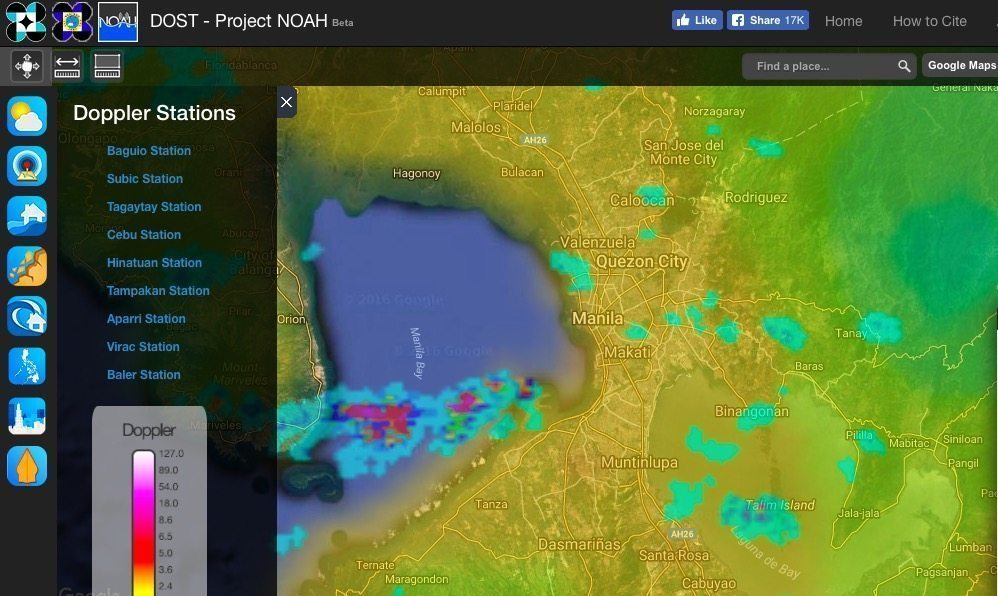In 2009, typhoon “Ondoy” (international name “Ketsana”) ravaged Luzon, the country’s largest land mass, and destroyed US$246 million in infrastructure and agriculture. Much of the capital, Metro Manila, was submerged in flood waters, stranding thousands of commuters and passengers. In 2013, super typhoon “Yolanda” (international name “Haiyan”) devastated the Visayas islands, killing at least 6,300 people and bringing about $2.05 billion in damages.
How technology can help
While disturbances like these are unavoidable, technology can help mitigate the effects of the disaster, particularly by enabling citizens, organizations and government agencies to plan ahead. In the wake of Ketsana, the country’s Department of Science and Technology commissioned the development of a system that provides up-to-date information and data to the public.
Dubbed the Nationwide Operational Assessment of Hazards (NOAH), the system involves an array of hydro-meteorigical devices, light detection and ranging (LIDAR), doppler radar systems, landslide detection devices and other sensors. The project also includes web and mobile apps (iOS and Android) that the public can access to keep track of storm, flooding and landslide risks.

Top “smart city” initiative
Recently, the International Data Corporation (IDC) in Asia Pacific awarded Project NOAH as the Top Smart City Initiative in Public Safety during the 2016 Smart City Asia Pacific Awards. As the Philippine government’s flagship disaster management initiative, the project “succeeds in transforming cities for the better through smart and sustainable technology,” says Jubert Daniel Alberto, Country Head, IDC Philippines.
Other contenders and awardees include solutions for smart farming, efficient transportation, energy load forecasting services and e-tourism initiatives across the Asia Pacific region. Beyond government-led projects, IDC highlights the benefit of citizen-led initiatives in building smart cities. “[T]here is notably a growing prevalence of citizen-directed initiatives and driving local industries, which ultimately contributes back to stimulating domestic social and economic sustainability,” says Gerald Wang, Head, IDC Asia Pacific Government and Education.
The takeaway
Of course, data and applications can only do so much, and it will be up to the stakeholders to act upon the information provided by the platform. In this regard, NOAH has, so far, succeeded in helping concerned citizens and agencies. For example, local government officials in low-lying Marikina City cite NOAH as an effective tool in making life-saving decisions. While officials previously had to manually make telephone calls to ask about expected rainfall and water levels, access to real-time data helps them decide when evacuation is necessary.
